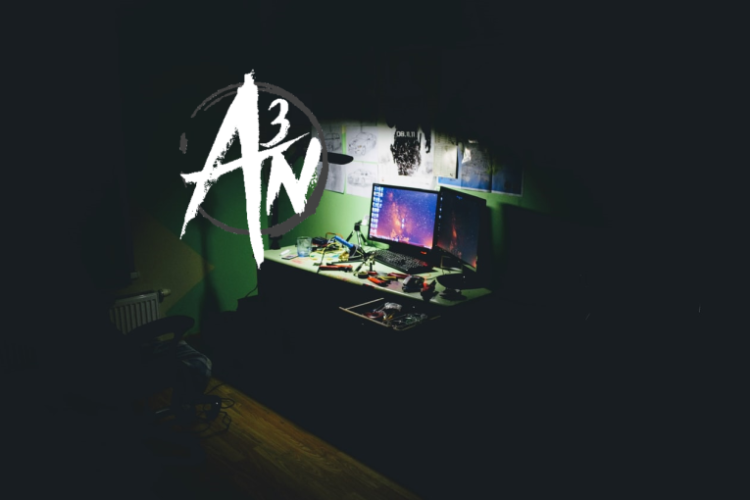
Hacks for a Modern Day Agorist
Traditionally, agorism was simple. Have skills, make money off them. In the modern world, however, we have a different situation and as the internet has taught us, modern problems require modern solutions. So how does one manage agorism in the modern world? What does that look like for the average person?
I’ve compiled a list of hacks and tools I consider essential for my lifestyle as it is now. These are separated into three general categories. For the modern-day agorist, utilization of technology is essential, especially now we live in a world where you make more money teaching people to make things online than you do actually selling that item.
If you can manage to start using all of these, you’re set to be resilient in today’s markets even if your real passions are things like crafts, something that many people feel you just cannot making a living off of anymore. However, this comes with the disclaimer to not feel bad if you love all of these ideas but don’t integrate any of them. I can’t say I even use them all at this point. We are human, but even just getting these in your head primes your brain in a way that gets you thinking about the start, which is the first step to really getting things done.
Productivity
Getting Things Done method by David Allen. I first heard about this through Brett Veinotte from School Sucks Podcast, as well as the folks behind Tragedy and Hope Podcast. This has been one of the most common sense – but genius – time management systems out there. Huge changes come from implementing tools from it, like the ubiquitous capture device, a book you carry everywhere to absorb everything as it happens, from purchases to ideas to books you want to read. It does take time especially if you have many interests to keep get the whole system into place but it is worth the effort, especially when combined with Bullet Journals.
Bullet Journals: Thank you, Pinterest, for this gem. It’s basically a custom planner made by you, for you, based on only your needs, goals and desires. This is perfect for both those who love to draw and doodle and those looking for an efficient, plain text version . I find when I am very busy, I don’t bother with pretty layouts. But this journal is essentially the book of you. You can put trackers into it to follow everything from new habits to spending to food. Its a place to log goals, dreams, and help you translate it into an action plan to make it a reality. That being said, when life gets REALLY busy I am known to abandon pretty much all of these things, so if you get into it and fall behind, just turn a new page and start over with the next week. One of the reasons I love bullet journals is you can see the progress – failures included – and it becomes fascinating to watch.
Pinterest: I would be nothing without Pinterest. I actually resisted getting an account for years until I started crocheting. I quickly realized I had been missing out on the biggest database of useful information and cool shit on the internet. Really though, there’s information on everything from the viking style of knitting (that people are doing today, still) to fancy keto recipes. It’s a crafter’s and foodie’s delight and pretty much everything I make, be it food or craft, is inspired by something I saw there.
YouTube: What I don’t learn on Pinterest I find on YouTube. Seriously, just about anything you want to learn is on YouTube and I have found the learning process to be essential in my agorist journey, because I like to have a lot of little things that make me money, many of them very different. Everything from technical tutorials to recipes or crochet patterns I pull from YouTube. They may be censoring some but the useful stuff is there in abundance and that’s all I care about.
Awesome Timesheet: It’s a chrome plugin that is a little time sheet. This can be useful if you’re someone who likes to know how much you make “per hour” even if you’re not paid that way. This is good for becoming more efficient at the things you do. It’s simple to install and use, and you can put details of what you got done in what amount of time so you can really figure out how much time you put into things. For people with many interests like me, this is super useful.
Canva: I don’t pay for much on the internet but I do pay for Canva’s monthly subscription. It’s about $13 but it’s the most powerful and easy to use graphic design tool out there. It comes with preloaded templates that are size optimized for whatever platform you need. I made my speech slides for Anarchapulco with Canva as well as all the images I used for Anarchaforko. It’s web-based, so you can use it anywhere, which is incredible.
The Brain Software: This is mind-mapping software I’ve used on and off for 10 years. My first recommendation is to backup your brains on a cloud so that way if your tech is lost you don’t loose what you have. I have had to do this repeatedly and it’s not fun starting over when you have had a great dynamic brain of all the stuff you cared about. It basically holds thoughts about whatever you want. Some make brains for specific topics, others make a master brain full of many topics with thoughts and links and sources about each. I used to use them to store recipes and record the ones I’d developed as well as for gardening information.
Communication/Social:
KeyBase: It’s an encrypted chat software that looks great and is mostly easy to use. Sometimes it withholds notifications, but that’s actually a good thing as it means it has a little less control of your device. You can have exploding messages, private chat groups, and all sorts of other features including a built in cryptocurrency.
Wire Private Messenger: I prefer Wire for person to person private messaging. It’s claimed to be most secure but I also like the user interface as well. I’ve used Wire for three years at this point. You can also do exploding messages and group chats within Wire.
ProtonMail: The only mail service I use is ProtonMail, and last year I even went for the membership and I’m glad I did. I’ve been using ProtonMail for over three years and have preferred it over Google since the beginning. It’s encrypted, especially between ProtonMail addresses, but it also has great functionality and is easy to use with an elegant interface.
Flote.App: Created by a few awesome cryptoanarchists I know, Flote.app is intended to replace both Patreon and Facebook from the seems of it. They’ve created a beautiful interface there that’s more appealing than both Facebook and Twitter with cryptocurrency payments and subscriptions built right in, already functioning. There’s already a close-knit community there and potential for growth outside of the cryptoanarchy community because of it’s interface.
Hootsuite: For those like me who get their agorist strength from their network, social media is crucial to keep consistent. There are tools out there that streamline the management of many social media accounts, sometimes for a small monthly fee. Hootsuite is the one I have the most experience with. It not only allows you to post to multiple platforms from one place, but you can also see and respond to all social media accounts through one interface.
WordPress: This is web design made easy for people. Seriously, anyone who grew up on the internet can get a WordPress set up with a theme and have a beautiful blog or online store in a few days if they’re really trying. This is great for those who like sharing what they do or anyone interested in ecommerce (or if you’re me, both). Unless you’re really obsessed with web design, there is no need to learn coding to build something awesome, quickly.
Money
Coinomi: This is currently my most used wallet because it has all the currencies I use on a regular basis, like Bitcoin Cash and SmartCash. It’s also easy to use and requires you secure it with a phrase when you make the wallet. This feature recently saved my ass as I had the problem where someone sent money to an old address. I had the phrase, put it in and recovered my funds. So far I have had nothing but good experiences with Coinomi.
CoinPayments.Net: On the theme of WordPress, this is the easiest way I know of to accept cryptocurrency for payments and purchases online. It also has so many cryptocurrencies on it’s list you could accept just about everything if you really wanted.
Affiliate Marketing: If you make a website, one way to make money off of it is affiliate marketing. This could be an unexpected way to make quite a bit of money for your agorist adventures.
Freelancing Websites: For those who are looking to get started in agorism but still work jobs for others, there is no shame in transitioning to freelance online work to help fund your agorist adventures. I personally am lucky enough to where I only work freelance online jobs that I like, but sometimes it’s worth it to do things you either don’t like or are unfamiliar with especially with online gigs. Cause even if it’s something boring like data entry, chances are you’ll do it at home and that’s always way more fun.
Being a modern day agorist has its perks. For one, I have a worldwide network of friends I can rely on to either hire me or connect me with someone willing to hire me. The only real downside I see to my lifestyle is that I often get overwhelmed by the amount of things that pull my attention. Without these tools I would be absolutely unable to finish any of the things I find important.
My lifestyle comes with a lot of uncertainty but is never boring, and so far, I haven’t gotten to a point in the last seven or so years I’ve been living in agorism where I’ve even considered returning to a regular rat race lifestyle. Life at its hardest now is still better than the monotony of doing anything over and over again for the rest of my life.









